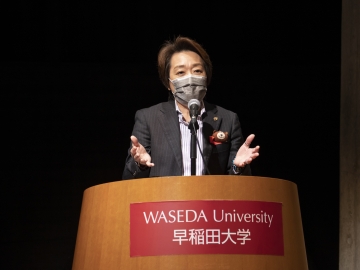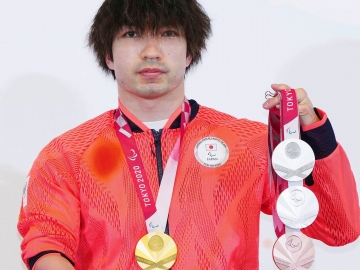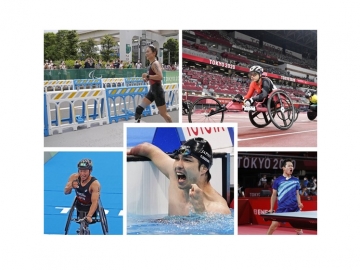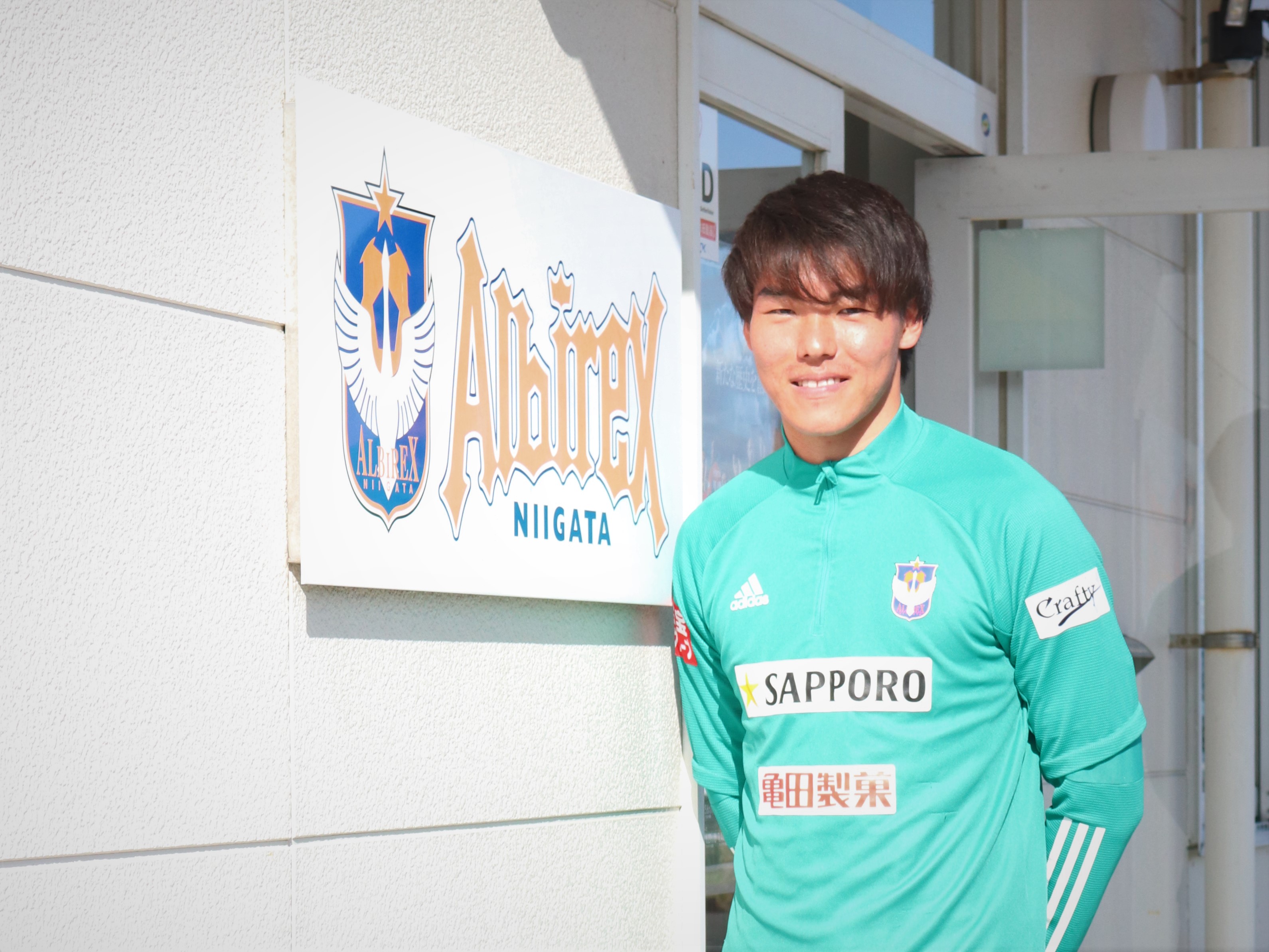 In this the seventh instalment of the Waseda athletes special series, we talk with male footballer Ryosuke Kojima (graduate of Sports Sciences in 2019), currently playing for J2’s Albirex Niigata. He has played as regular goalkeeper for age-grade Japan teams since joining Waseda AFC, Association Football Club, and last year was selected for the Japan A men’s team. He also captained the team to the finals of the Asia Football Cup Under-23 Championship in January, and he is a key member of the team to compete in the Tokyo Olympics. Here, we talk with Kojima about what he learned at Waseda University, his upcoming goals and his enthusiasm heading into the Olympics.
In this the seventh instalment of the Waseda athletes special series, we talk with male footballer Ryosuke Kojima (graduate of Sports Sciences in 2019), currently playing for J2’s Albirex Niigata. He has played as regular goalkeeper for age-grade Japan teams since joining Waseda AFC, Association Football Club, and last year was selected for the Japan A men’s team. He also captained the team to the finals of the Asia Football Cup Under-23 Championship in January, and he is a key member of the team to compete in the Tokyo Olympics. Here, we talk with Kojima about what he learned at Waseda University, his upcoming goals and his enthusiasm heading into the Olympics.
Start in the game
――When did you start playing football?
As an elementary student I wanted to start playing sport and it was back at the time of the Japan Korea World Cup. I watched it and it made me decide on football.
――How did you end up in goal?
I really started playing seriously in my first year of junior high school. As a sixth-grader at elementary school I would play in the field as well as keep goal, but I was picked for that team as the goalie. Goalkeeping was fun and whenever there was time I would use the lunch break to practice with my friends. As I would do this every day, the coach of the team asked if I would like to try being the goalkeeper. That is when I really started to play.
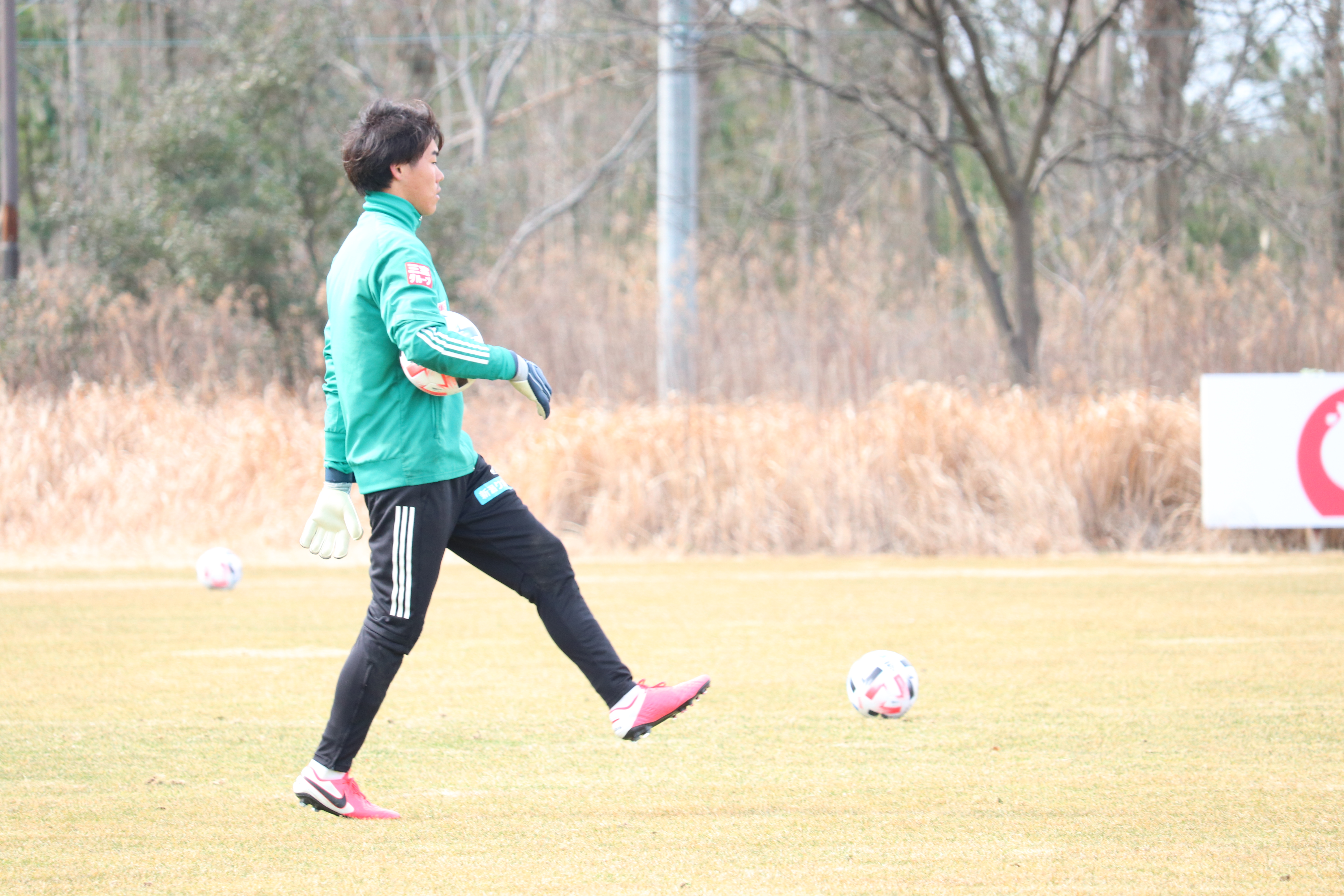
Learnings from Waseda
――Why did you choose to study at Waseda University after your stint with the Nagoya Grampus U-18s?
Once it was decided that I would not be promoted to the top team, I was filled with the urge to try my luck at university. That is why I joined Waseda training sessions. There I found a good atmosphere and environment in which I could reflect on myself. I thought, “this is a place where I can grow not just as a player but as a human being”. I had a lot of weaknesses back then, and at first I felt out of place at times. However, I chose Waseda because you can learn more in that kind of place.
――What were the good things about going to university?
It gave me time to dedicate to myself. When I graduated high school, I had a thin frame and not much power. So first of all I wanted to use the four years to grow more and to become an independent footballer. My goalkeeping coach was unable to come every day, so I had to come up with my own training regime. It was this experience that made me independent.
――What did you think when you looked at the professionals of your generation?
I thought that those who went pro faced a tough environment. For four years I did not play professionally, so once I graduated I plunged headlong into daily training to catch up, so that I could go pro myself.
――What kinds of things did you learn at Waseda?
I studied in the Faculty of Sports Sciences, so I learned deeply about the human body. In student life it is important to be independent, so I needed skills to communicate my view to others and to lead a team based on others’ opinions. This would be unthinkable in an environment where “the coach knows best”. At university, there are student staff and sometimes you team up. This teaches you how best to guide or run a team.
――Was there anyone who influenced you at Waseda?
I was influenced by a lot of people and it would be hard to name just one. It was my fellow students who were the most influential for me. Our team captain was Yuki Okada, and he was a driving force in the team. But it was not just Okada. Everyone in the team was aware of the need for communication. I got on with my fellow students, but we were also very strict with each other. They were great.
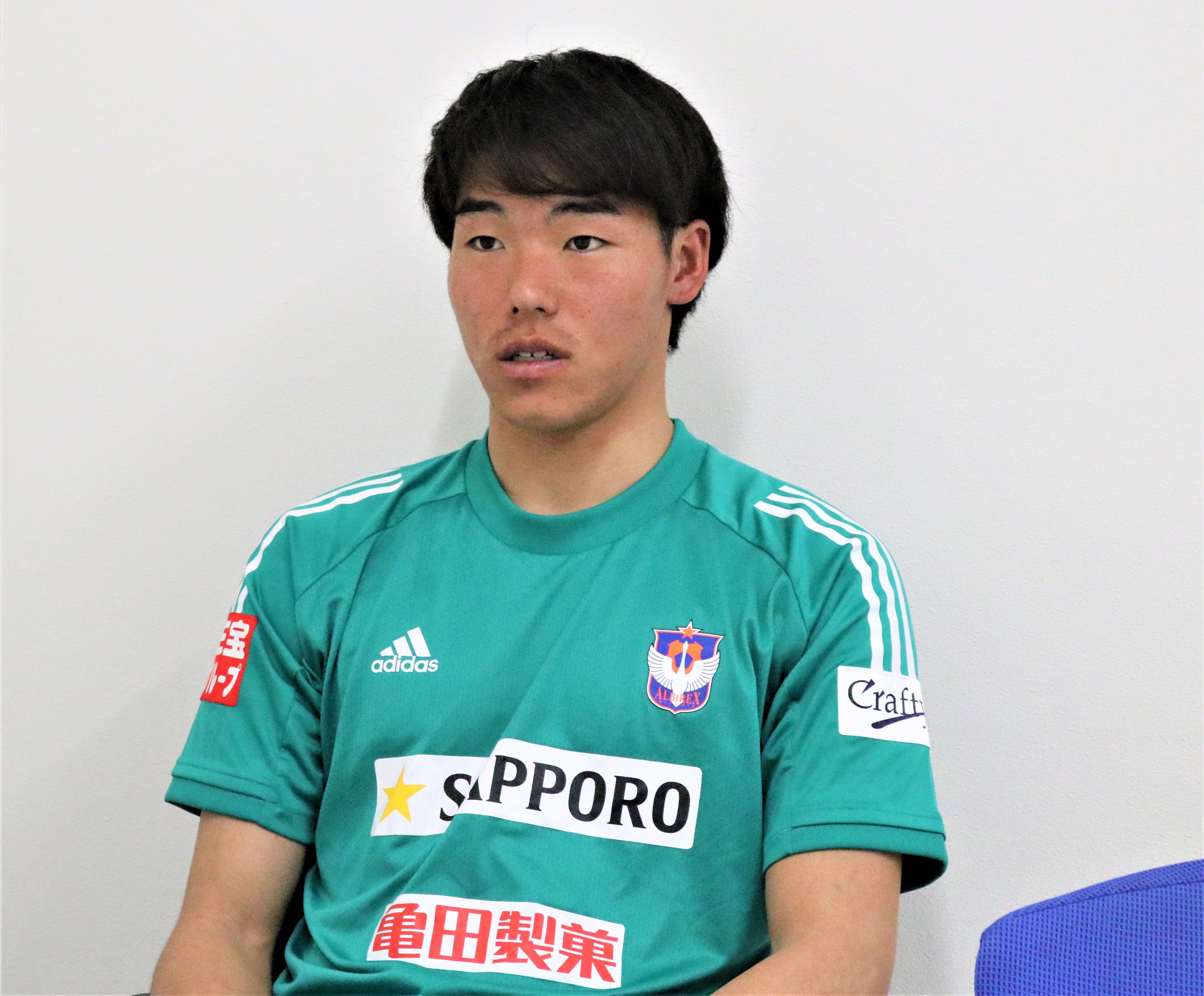
Experience with Waseda AFC and message to new players
――How did you manage to win the University league?
Regardless of whether they were playing in the game or on the bench, having the input of all the players had a great effect on the team. There were guys who would warn other players when they were having a negative effect on the team, so it created a virtuous circle. I am grateful for having been blessed with such teammates.
――Are you still in touch with your old team?
Yes, we are in touch and we go out to eat together.
I also meet Soma (Yuki Soma, graduate of the School of Sports Sciences in 2019, playing for Nagoya Grampus) when I train for the Japan team. We also shared a room recently as teammates in the final Asia qualifying games for the Tokyo Olympics, so I have no feeling of nostalgia whatsoever!
――Do you follow the current Waseda AFC team?
All the time. I always look at the Twitter notifications. With my old teammates we put together a short video message from all of us and Waseda AFC will play it before the game.
――How would you characterize the current crop of fourth year students?
They are not just on a roll, they also have a serious side to them. If they play well as a unit, I expect that they will achieve excellent results.
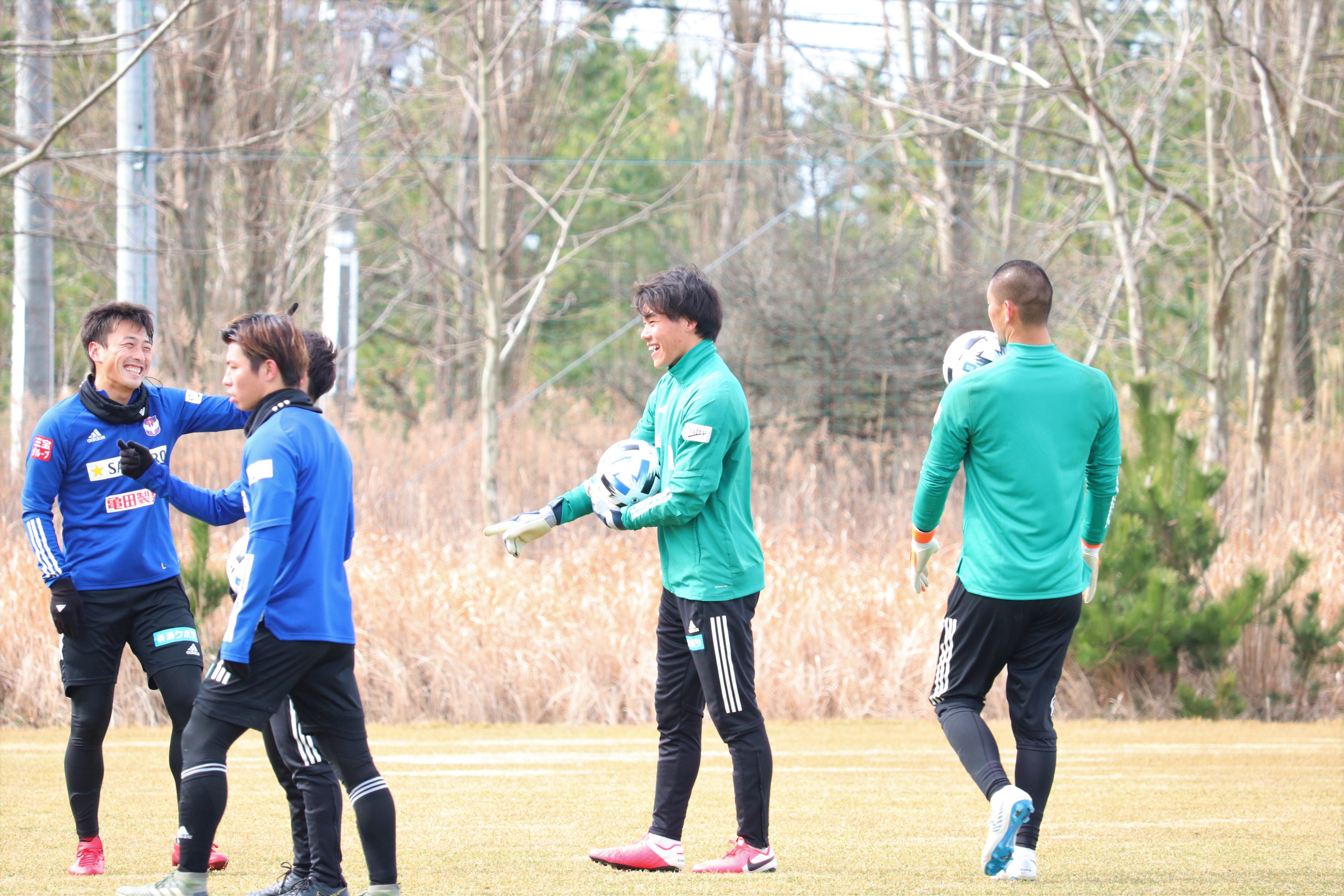
To the next stage
――Has anything surprised you now that you play as a professional?
I was surprised by the superb environment. It might be obvious, but you get breakfast and dinner provided. When it comes to training, the quality is high. We are always required to think for ourselves as we train.
――Have you had the Olympics in mind for a while?
I have always had the Olympics in mind. I wanted to go to the Olympics since before Tokyo was selected to host.
――What are your short-term goals?
For the short term, I would have to say I would like to win gold at the Olympics. For the future, I would like to play for Japan at the World Cup. That has been my goal forever. It is the biggest football tournament in the world, after all and for a football player, there is no higher stage.
――We are months away from the Olympics. Frankly, how are things looking?
Not long now! The team has committed to the goal of a gold medal and I hope to play and contribute to winning that gold. First I aim to be selected, and to do that I need to get results for my team in matches.
Article: Ryotaro Hashiguchi, Waseda Sports Magazine
Camera: Kimiko Baba, Waseda Sports Magazine

